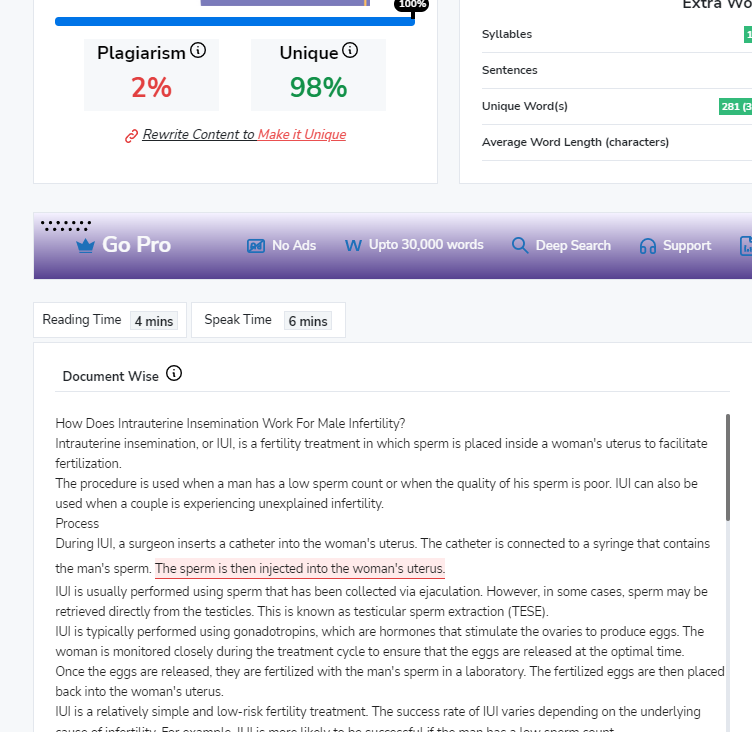
Intrauterine insemination, or IUI, is a fertility treatment in which sperm is placed inside a woman’s uterus to facilitate fertilization.
The procedure is used when a man has a low sperm count or when the quality of his sperm is poor. IUI can also be used when a couple is experiencing unexplained infertility.
During IUI, a surgeon inserts a catheter into the woman’s uterus. The catheter is connected to a syringe that contains the man’s sperm. The sperm is then injected into the woman’s uterus.
IUI is usually performed using sperm that has been collected via ejaculation. However, in some cases, sperm may be retrieved directly from the testicles. This is known as testicular sperm extraction (TESE).
IUI is typically performed using gonadotropins, which are hormones that stimulate the ovaries to produce eggs. The woman is monitored closely during the treatment cycle to ensure that the eggs are released at the optimal time.
Once the eggs are released, they are fertilized with the man’s sperm in a laboratory. The fertilized eggs are then placed back into the woman’s uterus.
IUI is a relatively simple and low-risk fertility treatment. The success rate of IUI varies depending on the underlying cause of infertility. For example, IUI is more likely to be successful if the man has a low sperm count.
IUI is generally well tolerated by most women. The most common side effects are mild cramping and bloating.
IUI is a safe and effective fertility treatment for couples who are struggling to conceive. If you are considering IUI, be sure to speak with your doctor about your specific situation
Yes. A low sperm count can be the result of many things, including infections, injuries, and certain medications. For many men, the condition is temporary and will return to normal after a few months.
If your sperm count is low, several options are available for couples trying to conceive:
In vitro fertilization (IVF). In this procedure, eggs are removed from your ovaries and fertilized in a laboratory with sperm collected from you or your partner. The resulting embryo is then transferred into your uterus to allow implantation.
Intrauterine insemination (IUI). During IUI, washed sperm are placed directly into your uterus through a narrow plastic tube inserted into it. This procedure has been shown to be successful in treating male infertility when combined with other fertility treatments such as Clomid or gonadotropins.
The answer to this question is not straightforward. The number of motile sperm required for IUI depends on a number of factors, including the age of the woman, the duration of infertility, and whether or not she is having her first child.
In general, if you’re younger than 35 years old and have been trying to conceive for less than 6 months, your doctor may recommend that you undergo IUI with only 10 million motile sperm per cycle.
However, if you’re over 35 years old or have been trying for more than six months, your doctor may recommend that you undergo IUI with 20 million motile sperm per cycle.
The best age to do IUI is very much dependent on your own circumstances. If you are a woman who has had a problem with fertility, then the sooner you can get treatment the better.
For example, if a woman has had blocked fallopian tubes or endometriosis and has not conceived after 6 months of trying, then she may benefit from IUI treatment.
If a woman is aged over 35 years, then she is considered to be ‘older’ and it becomes increasingly difficult to conceive naturally as time goes by.
However, there are many women who have conceived naturally at this age because they have been trying for long enough and their partner’s sperm count is normal. This may sound strange but it does happen!
If you are 35 years old or over and have not conceived within 2 years of regular unprotected intercourse (without the use of any fertility drugs), then it is advisable to seek medical advice regarding your chances of conceiving naturally (or through other treatments) before turning to IVF treatment.
